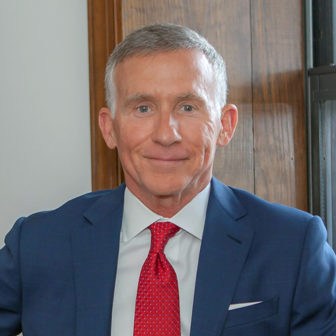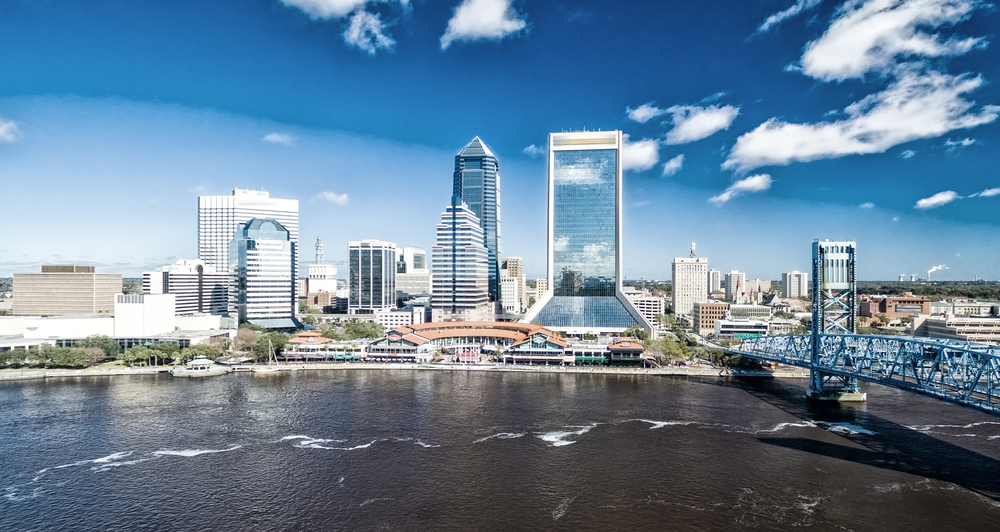![]() When we began our journey to rebuild broken urban communities in our city, Jacksonville, Fla., 20 years ago, little did we know that we would become an important part of a powerful national movement — reframing how we look at crime, incarceration and poverty.
When we began our journey to rebuild broken urban communities in our city, Jacksonville, Fla., 20 years ago, little did we know that we would become an important part of a powerful national movement — reframing how we look at crime, incarceration and poverty.
We have learned that the role poverty plays in the conversation of criminal justice reform is far understated. Incarceration adversely impacts already disadvantaged communities by weakening family stability, decreasing safety, reducing human capital and undermining community infrastructure. Upon release from incarceration, there are few job prospects; multiple restrictions on safe, affordable housing; and limited education opportunities for returning citizens.

Kevin Gay
These barriers prevent successful reintegration into the community and further contribute to poverty. For most, there is no way out. Having a criminal record is the equivalent of wearing a scarlet letter when it comes to obtaining employment, housing and education. Without the ability to work, live or learn, people returning from incarceration are unable to successfully connect with their community and so the cycle of hopelessness continues, and those individuals are far more likely to recidivate.
The coercive mobility thesis explains that the cycling of people into and out of prison constitutes an important and distinct form of mobility that can harm the communities that are hardest hit by both crime and, perhaps ironically, crime control policies. Unlike upward mobility, which connects occupation, industry and location to a person’s ability to rise to a higher social or economic position, coercive mobility links incarceration to a person’s inability to break the cycle of crime. Indeed, rather than alleviating crime, scholars contend that perpetually high rates of incarceration make disadvantaged communities worse and increase rates of crime in specific ZIP codes.
At Operation New Hope, we have been able to see this firsthand in the disadvantaged communities we serve in Jacksonville. By acknowledging this vicious cycle of poverty, incarceration, release, unemployment and recidivism and working to remove the barriers returning citizens face, we have successfully developed a collective approach to address the many factors contributing to coercive mobility and have had great success in reducing recidivism rates as well.
‘City of Second Chances’
The early years of this journey have proven to be very important as we look back. Our experience has taught us that reentry is much more than just providing critical services to those returning home. What is required is the building of a strong community framework of support that will properly incubate successful transition home and lead to healthier communities and lower recidivism.
We learned the importance of building strategic partnerships with businesses, criminal justice players, the faith community and other key members in the city. Our Ready4Work reentry program delivers trained workers to over 400 employment partners who have come to trust our model and our clients. We have engaged key criminal justice partners, creating opportunities to diversify sentencing alternatives. Leaders from the faith community have helped to champion the importance of redemption and have provided support and community to the clients we serve.
We have worked closely with post-secondary educational institutions to address the skills gap of employment needs and offer shorter pathways to vocational training, providing our clients with a competitive edge that leads to living wage employment. We helped lead Jacksonville to becoming one of the first cities to “ban the box” in 2008; and a few years later, we helped our local JAXChamber become one of the first to adopt a similar approach called Project Open Door, reducing barriers to employment for the formerly incarcerated. Through all this, we have successfully cultivated an environment in which second chances can be realized, thus building the recognition for Jacksonville as the “City of Second Chances.”
The success of the program is evident in the transformation stories of our clients, enhanced hiring practices for employment partners, healthier communities and families, and better public safety. Our recidivism rate illustrates the success and cost savings of our programs. The Florida Department of Corrections reports a three-year recidivism rate of 24.5%, whereas our Ready4Work program reports a three-year recidivism rate for the same cohort of 8.64%. We are saving taxpayers millions of dollars by avoiding repeated cost of incarceration and lost tax revenue.
But most importantly, we are addressing the problem of coercive mobility and the cycle of poverty. We are successful in proving a structured social framework, otherwise absent or depleted in high-incarceration neighborhoods, that is necessary for cultivating the human capital in the formerly incarcerated to prepare them for jobs with upward mobility. Where there is opportunity for growth and contribution, communities are stronger, and crime is lower. We believe (and know) second chances matter.
Social entrepreneur, CEO and founder of Operation New Hope and the nationally recognized Ready4Work reentry program, Kevin Gay has helped revitalize neighborhoods in Jacksonville, Fla., while assisting individuals to find a way out of the cycle of addiction, poverty and incarceration for more than 20 years.
